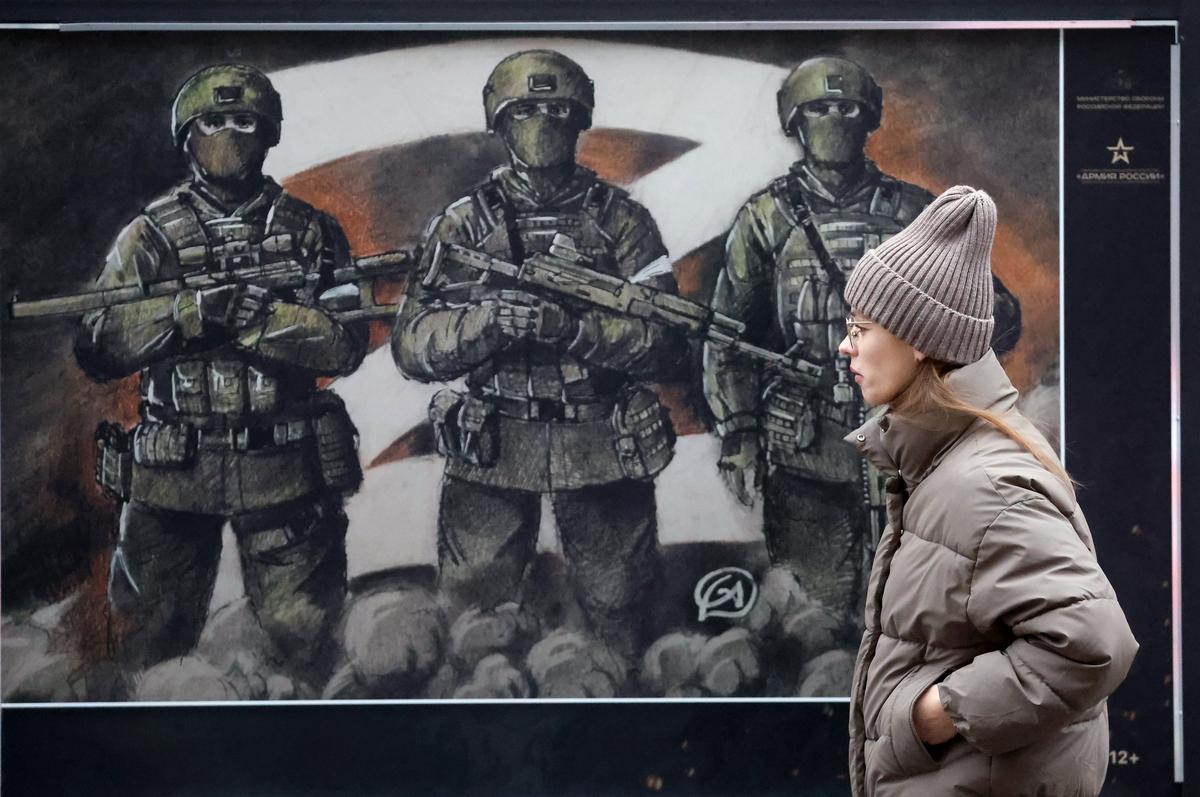
A woman walks past a Russian army poster in St. Petersburg, Russia, 30 November 2024. Photo: EPA-EFE/ANATOLY MALTSEV
Vladimir Putin has signed off on a military-focused budget for the next three years that will see Russia’s already sky-high spending on its armed forces increase by a further 25% in 2025, according to a copy of the budget published by the Kremlin on Sunday.
The law signed by Putin will see government spending on defence and security rise to a record 41% of its annual budget next year, with some 13.5 trillion rubles (€119 billion), the equivalent of 6.3% of Russia’s GDP, allocated for defence spending in 2025 and a further 3.5 trillion rubles (€30.9 billion) for security.
The military expenses outlined in the budget, which will peak in 2025 before a slight decrease to 12.8 trillion rubles (€113 billion) in 2026 and 13.1 trillion rubles (€115.6 billion) in 2027, surpass the government’s combined spending on education, healthcare, social policy, and the national economy, according to Russian independent news outlet The Bell.
The budget also allocates some 1.3 trillion rubles (€11.5 billion) for the “restoration” of what the Kremlin calls Russia’s “new regions” — the Donetsk, Luhansk, Kherson and Zaporizhzhia regions of Ukraine, which it illegally annexed in 2022 — as well as over 31 billion rubles (€273.6 million) on Vladimir Putin’s staff and security, a 26% year-on-year increase and far above Russia’s projected inflation rate, which Central Bank experts have forecast at 4.8% for 2025.
Russia’s introduction of a progressive income tax scale should see state revenue almost triple in 2025. Revenue from corporation tax is also expected to almost double next year, according to the government.
Costs for some state services, such as court fees, are due to significantly increase next year, and that tendency is only likely to continue, with revenues from fines and other penalties also projected to rise sharply.
Envisaging the end of Russia’s war in Ukraine, last year’s three-year budget forecast that after a sharp increase in 2024, military spending would decline almost as sharply in 2025 and 2026, a prospect that is apparently no longer on the cards.
In an interview with Russian business daily RBC in October, Finance Minister Anton Siluanov said that the ministry had had to take a number of “non-standard decisions” in putting together the “challenging” 2025-2027 budget, but that the military expenses it envisaged reflected the war’s status as a “top priority” for the Russian government and stressing that the Kremlin would spend as much “as necessary for the front, for victory”.
